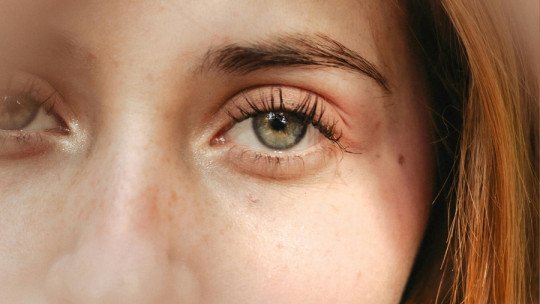
In contemporary society, envy of others’ physiques is a pervasive phenomenon that affects people of all ages and cultural backgrounds. With the growing influence of the media and social networks constant comparison with idealized beauty standards fuels feelings of inadequacy and self-criticism in those who do not feel up to those ideals.
It is crucial to understand what envy is and how it manifests itself in relation to other people’s physical appearance. Envy can arise when we perceive that someone else possesses physical qualities that we desire for ourselves, and it can trigger a range of negative emotions, such as sadness, frustration, and bitterness. Furthermore, envy can have significant consequences on our self-esteem, our interpersonal relationships, and our mental and emotional health.
In this article, we will seek to promote different strategies and skills to control envy of others’ physique. It is important to understand that this envy and excessive comparison has direct implications for emotional well-being.
Defining envy and its impact
Envy encompasses a complex set of emotions and feelings that arise when we perceive that a third person has something that we want for ourselves. Keeping other people’s bodies and perceptions of physique in mind, envy can manifest when we compare ourselves to culturally idealized beauty standards and feel like we don’t meet those social expectations.
This constant comparison with the bodies of others can generate feelings of inadequacy and self-criticism. We see ourselves as deficient compared to people who do seem to meet those beauty ideals. Social media, media and advertising often perpetuate these unattainable standards, creating additional pressure to conform, thus fueling envy.
The impact of envy of other people’s physiques and bodies can be very deep and long-lasting. On an emotional level, it can cause feelings of sadness, anxiety and low self-esteem. Constant comparison with other people’s bodies and idealization of other people’s physiques and appearances can lead to the development of a distorted perception of oneself and chronic dissatisfaction with our physical appearance.
In addition, physical envy can also affect interpersonal relationships and their quality. Hostility and resentments can arise toward those we perceive as more physically attractive or successful. This can damage the quality of our relationships and create an environment of competition and rivalry rather than mutual support and camaraderie.
It is important to recognize that body envy not only has negative consequences for those who experience it, but also for those who are the object of envy. Constantly being the object of comparison and admiration can generate pressure and stress thus contributing to a culture of insecurity and excessive competition around physical appearance.
Factors that fuel physique envy
Envy of others’ physiques can be fueled by a variety of factors, many of which are rooted in cultural and social norms surrounding beauty and physical appearance.
1. Media influence
One of the main factors is the influence of the media and the fashion and entertainment industry. These channels often promote unrealistic beauty standards, showing retouched and manipulated bodies that establish an unattainable ideal for most people. Celebrities and public figures, whose images are constantly in the spotlight, They can become beauty references that generate comparisons and trigger feelings of envy in those who do not feel up to the task.
2. Social pressure
Another important factor is social pressure. We live in a society where physical appearance is highly valued and judged. From a young age, we are taught to associate beauty with success, happiness, and self-worth, which can lead to an obsession with achieving certain beauty standards. This pressure is exacerbated by constant exposure to images and messages that reinforce these ideals which can make people feel inadequate if they don’t meet those expectations.
3. Comparisons on social networks
In addition, constant comparisons on social networks can increase the feeling of envy of others’ physiques. Platforms like Instagram and Facebook are filled with carefully curated images depicting “perfect” bodies and seemingly ideal lives, which can lead to feelings of inadequacy in those who view them. The ease with which we can compare ourselves to others online can intensify envy and fuel a mindset of scarcity rather than gratitude and acceptance.
Consequences of envy on personal well-being
Envy of others’ physiques can have significant consequences on personal well-being, affecting both the mental and emotional health of those who experience it.
1. Decreased self-esteem and self-confidence
First, envy can erode self-esteem and self-confidence. When we constantly compare ourselves to other people’s bodies and feel inferior, our perception of ourselves is negatively affected. This can lead to feelings of inadequacy and self-criticism, contributing to a distorted image of our own worth and beauty.
2. Painful emotions
Additionally, envy can trigger negative emotions such as sadness, frustration, and bitterness. Feeling envy of others’ physiques can generate resentment toward those people and even toward oneself for not meeting the same standards. This emotional burden can be overwhelming and make it difficult to enjoy everyday life.
3. Hostility and competition in interpersonal relationships
Another important consequence of envy is its impact on interpersonal relationships. Feelings of envy can generate hostility and competition toward those we perceive as more physically attractive or successful. This can create tensions in our relationships and make it difficult to build meaningful bonds based on trust and mutual support.
4. Food and physical obsessions
Additionally, envy can lead to unhealthy behaviors, such as obsession with diet and exercise, in an attempt to achieve the same standards of beauty we admire in others. This can lead to disordered eating habits excessive exercise and a dysfunctional relationship with our own body, which in turn can negatively affect our physical and mental health.
Strategies to control envy
Although envy of others’ physiques can be a difficult emotion to manage, there are effective strategies to control it and promote greater personal well-being. Here are some practical suggestions to manage envy in a healthy way:
1. Practice gratitude
Cultivating a sense of gratitude for our own bodies and our unique qualities can help counteract envy. Take time each day to reflect on the things you are grateful for in your own life, instead of focusing on what others have that you don’t. This can help shift your focus from scarcity to abundance.
2. Develop self-acceptance
Work on accepting and loving your body as it is, with its imperfections and quirks. Recognize that diversity in physical appearance is natural and beautiful, and that there is no single standard of beauty. Practice self-care and compassion toward yourself, treating yourself with kindness and respect instead of self-criticism.
3. Limit exposure to social networks and media
Idealized images on social networks and the media can fuel envy and generate a distorted perception of reality. Consider reducing your time on social media and limiting your exposure to content that promotes unrealistic standards of beauty. Instead, look for sources of inspiration that celebrate diversity and authenticity.
4. Cultivate empathy
Try to put yourself in other people’s shoes and understand their experiences and challenges. Recognize that we all have our own struggles and that physical appearance does not define our worth as a person. Practicing empathy can help you develop a more genuine and compassionate connection with others, rather than being envious of them.
5. Seek support
Don’t be afraid to seek help if you find it difficult to handle envy on your own. Talk to close friends, family, or a mental health professional that can offer you guidance and support on your journey towards greater self-acceptance and emotional well-being.
Conclusions
Controlling envy of others’ physiques is challenging, but it is essential to promote greater personal well-being and healthier relationships. By recognizing the factors that fuel envy and learning strategies to manage it, we can cultivate greater self-acceptance, gratitude, and empathy.
It is important to keep in mind that true beauty is not found in comparison with others, but in accepting and celebrating our own uniqueness. By practicing gratitude, self-acceptance, and empathy, we can free ourselves from the cycle of envy and live with greater satisfaction and joy. Let’s celebrate diversity in all its forms and remember that our value as people goes far beyond our physical appearance.








